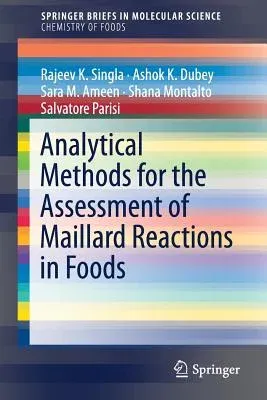Rajeev K Singla
(Author)Analytical Methods for the Assessment of Maillard Reactions in Foods (2018)Paperback - 2018, 19 March 2018

Qty
1
Turbo
Ships in 2 - 3 days
In Stock
Free Delivery
Cash on Delivery
15 Days
Free Returns
Secure Checkout

Part of Series
Springerbriefs in Molecular Science
Part of Series
Chemistry of Foods
Print Length
54 pages
Language
English
Publisher
Springer
Date Published
19 Mar 2018
ISBN-10
3319769227
ISBN-13
9783319769226
Description
Product Details
Book Edition:
2018
Book Format:
Paperback
Country of Origin:
NL
Date Published:
19 March 2018
Dimensions:
23.39 x
15.6 x
0.33 cm
ISBN-10:
3319769227
ISBN-13:
9783319769226
Language:
English
Location:
Cham
Pages:
54
Publisher:
Weight:
99.79 gm